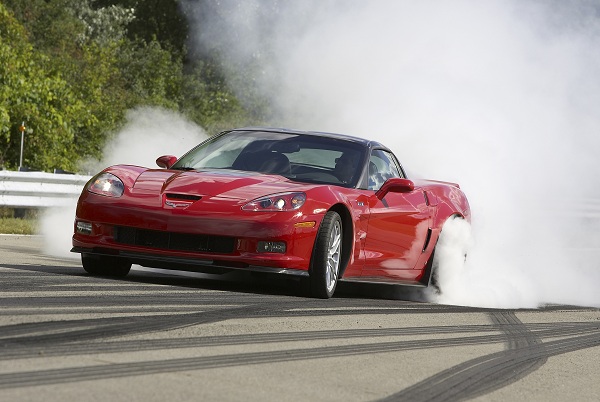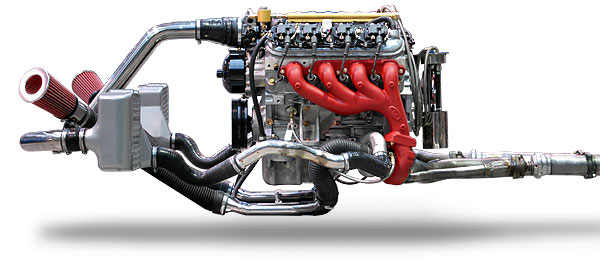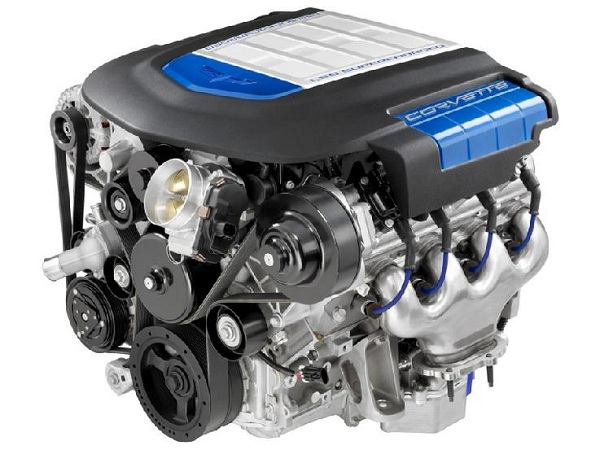Every Breath You Take: Turbos vs. Superchargers!

It’s All About Air
by Jason Giacchino
Natural Aspiration vs. Forced Induction
When it comes to reducing something as complex as an internal combustion engine down to its most basic, engines are a lot like giant air pumps. The motion of air is integral to the process in two primary areas: ignition and pressurization of the cylinder.
The term naturally aspirated refers to the simple concept of an engine drawing in as much air from the atmosphere as is requires to operate simply by running. In other words: one that depends on atmospheric pressure to counter the partial vacuum in the induction tract to draw in the air necessary for combustion. Each stroke of the piston creates a vacuum within the cylinder and the nature of air is such that it rushes in to fill that vacuum.
Forced induction works on the principle of compressing the air in the intake of an internal combustion engine for increased power; literally forcing the engine to swallow more air. The means by which this compression of the air around us varies and typically falls into two categories.
Turbo Charging: Putting the Exhaust to Work

Turbo charging actually relies upon the velocity of exhaust gas to spin a turbine; that turbine then powers a compressor and charged air (boost) can be injected into the engine for a temporary surge of acceleration. The chief benefit of a turbocharged system is that it consumes less power from the engine than a supercharger; literally putting exhaust gas to use. The primary drawback is decreased engine response on account of the fact that it takes time for the turbocharger to build up an air charge (spool). This noticeable delay in power delivery is often referred to as turbo lag.
Supercharging: All Power, All the Time

A supercharger works on a similar system of a mechanical compressor to build up air charge for the purpose of injection into the engine but unlike a turbo, rarely suffers from any noticeable lag in power delivery on account of the fact that its compressor is always running so long as the engine is (usually via a belt-driven pulley system not unlike that which spins the radiator fan). Additionally, rather than store up an air charge which then comes on as a noticeable surge in acceleration, a supercharger is capable of pumping the same volume of air into the engine for every revolution of the engine. This results in more output when compared to a similarly sized naturally aspirated engine all across the range of power.
The Price of Power
So the question then becomes, if forced air induction is such an effective way to increase an engine’s performance, why isn’t it done all the time? The answer is that there are some genuine disadvantages to consider, not the least of which involves an increase in pollution; specifically the amount of nitrogen/oxygen compounds the engine produces. This exhaust level is government regulated for emissions and commonly seen at inspection stations. In an era where leaving as minimal a carbon footprint as possible, this consideration shouldn’t be taken lightly.
Additionally higher compression tends to come packaged with higher combustion temperatures. When the temperature inside the cylinder increases, fuel entering is prone to detonate early (a condition called ?knocking?). To combat this, intercoolers are often implemented. These heat exchangers, which often look like miniature radiators, use air or liquid to bring down the temperature of the charge-air before it enters the engine.
Finally, forced air induction comes with the risk of accelerated engine wear when compared to more traditional means of increasing output (such as larger displacement). Mechanical complexity can also be a concern thanks to additional moving parts.
How about you? Do you have a supercharger or a turbo on your ‘Vette? Or do you think the trade-offs aren’t worth it? Head over to the Forum and let us know!

